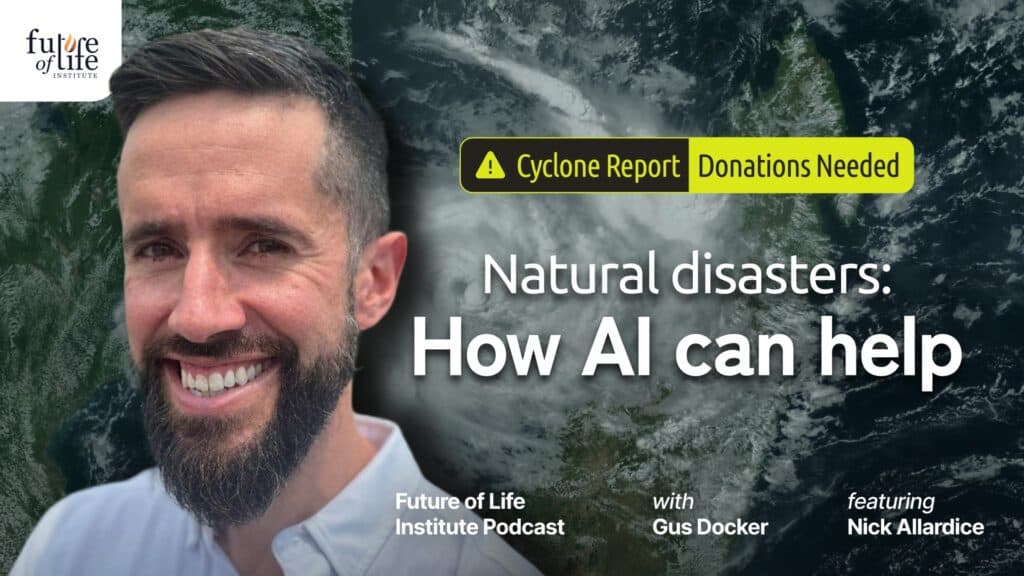Climate Change

Contents
Click here to see this page in other languages: Chinese ![]() Russian
Russian ![]()
“Climate change is a huge problem, and it absolutely needs to be solved.”
Bill Gates, Co-founder of Microsoft and the Gates Foundation
By 2050, the earth’s population is expected to pass 9 billion. By 2100, climate models predict global temperatures will be on average 4°C warmer and sea levels will be 0.7m higher under “business as usual” conditions. The impacts of such changes have been widely studied and many will be felt within our lifetimes. According to the Intergovernmental Panel on Climate Change’s (IPCC) Fourth Assessment, the impacts will be overwhelmingly negative across the globe, including increased hunger, water stress, flooding, extreme weather, and impacts on biodiversity and human health.
How can we balance the needs for population and economic growth against the needs for environmental stability? The solutions to such a dilemma will require innovative new policy and will challenge the basic assumptions upon which our economy is founded.
What the experts worry about
Food production is intimately linked to the climate. Increased irrigation demands and prolonged droughts are associated with a warmer and less stable climate, and will increase the demand for fresh water. However, fresh water will become less accessible as glacial sources are reduced. Heat stress on crops and livestock is another major and often overlooked factor. Areas of the world specialized in cultivating specific crops may become either unsuitable for those crops or at least less efficient, especially in areas where localized temperature increases are greater than the global average. Continued acidification of oceans due to absorption of CO2 from the atmosphere will affect marine health. The IPCC’s fifth assessment examined a wide range of regions and crops and found, with high confidence, that the negative impacts of climate change have been more common than positive impacts.
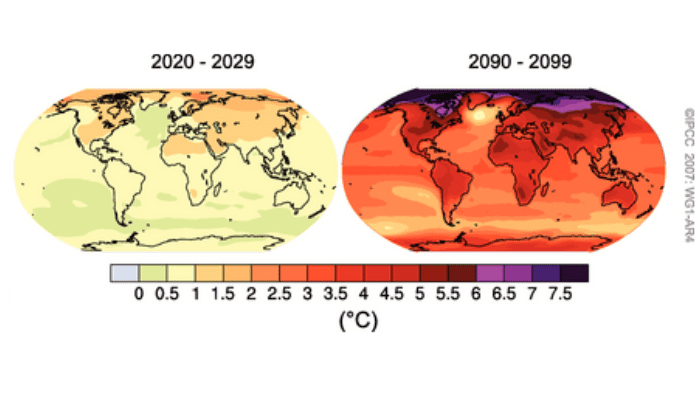
Projected surface temperature changes for early and late 21st century, relative to the period from 1980-1999. AOGCM multi-model average for upper-limit projections (Source: IPCC).
The IPCC projects with very high confidence that climate change will also increase risks from severe weather, particularly for urban populations. These include risks from storms, extreme precipitation, landslides, inland and coastal flooding, droughts and water scarcity. Risks are further increased for those lacking essential infrastructure.
Sea level rise is another major concern. Even a 0.7m sea level rise, the value predicted for the end of the century, could have drastic implications. It has been argued that by 2050, 26 major US cities will face an emerging flooding crisis and the IPCC reports high confidence projections for increased risks from storm surges. Storm surge could cost in the order of trillions by 2100. Many developing countries are more vulnerable and less able to respond to the effects of sea level rise, which, like the effects on agriculture, could add to overall geopolitical instability.
Compared to other regions, Asian countries exhibit the highest population exposed to river flooding; meanwhile, Miami, New York, New Orleans, Osaka-Kobe, Tokyo, and Amsterdam, are among the most exposed to flooding in terms of assets.
Lastly, long-term prospects for sea level rise become much worse when looking beyond the end of the century. Even if the world succeeds in stabilizing global warming to the 2°C targeted by current climate negotiations, sea level rise could continue well beyond the 0.7m value predicted for the end of the century. Complex feedback processes between the world’s oceans, the climate, and the ice sheets themselves could facilitate continued melting and ultimately lead to rises as great as 6m.
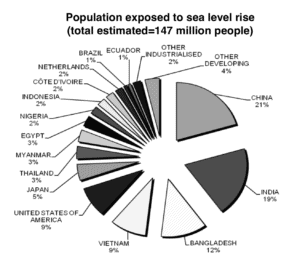

Population exposed (left) and assets exposed (right) to sea-level rise, storm surge and subsidence by country. (Source: Ranking Port Cities: Exposure Estimates)
Recommended References
Media
- American Institute of Physics: The Discovery of Global Warming: Hypertext history of global warming
- National Academy of Sciences – Science Museum: Earthlab: Interactive materials about climate change
- The Encyclopedia of Earth: Climate Change FAQs: Comprehensive discussion on climate change contributed by users
- U.N. Framework Convention on Climate Change: UN convention that aims to prevent “dangerous” human interference with the climate system
- MinuteEarth Video: A short video that provides an entertaining view of trends in earth’s environment.
- NY Times Dot Earth Blog: An opinion blog in which Andrew C. Revkin examines efforts to balance human affairs with the planet’s limits.
FAQ
- U.N. Intergovernmental Panel on Climate Change (IPCC) FAQ: FAQ that covers some of the basics of climate change.
Research Papers
- Center for International Climate and Environmental Research – Oslo (CICERO): Program-specific reports on their initiatives
- Environmental Defense Fund: Program-specific reports on their initiatives
- Millennium Ecosystem Assessment: Offers reports on the ecosystem changes
- MIT Joint Program on the Science and Policy of Global Change: Offers reports and scientific publications on issues related to climate and energy global changes
- Stanford Global Climate & Energy Project: Gives program-specific reports on their initiatives
- Bruce Schneier – Resources on Existential Risk, p. 96
Organizations
- U.S. Global Change Research Program (USGCRP): A US Government research program that seeks to assist the Nation and the world to understand, assess, predict, and respond to human-induced and natural processes of global change.
- National Aeronautics and Space Administration (NASA): Global Climate Change: Educational materials concerning environmental issues.
- Climate Change Communication: Bridging Science & Society: Science outreach led by the Yale School of Forestry & Environmental Studies
- Climate Interactive: Offers educational materials about climate change
- Organization for Economic Cooperation and Development (OECD): Environment Directorate: UN economic agency views on environmental issues
- NOAA Climate.gov: A source of scientific data and information about the climate
- Real Climate: Offers data compilations from scientific research on weather
- MIT Center for Collective Intelligence: Climate Collaboratorium: Cooperative forum for climate recovery ideas
- Center for Climate and Energy Solutions (C2ES): Independent, nonpartisan, nonprofit organization working to advance strong policy and action to address the twin challenges of energy and climate change
- World Bank: Climate Change: Information on projects, programs, research, news items related to climate change provided by the World Bank
- European Environment Agency (EEA): EU agency source for those involved in developing, adopting, implementing and evaluating environmental policy, and also the general public
- MIT Center for Global Change Science (CGCS): Addresses fundamental questions about climate processes with a multidisciplinary approach and aims to improve the ability to accurately predict changes in the global environment
- Tyndall Center for Climate Change Research: Researches, assesses and communicates information on climate change from a distinct trans-disciplinary perspective
- U.N. Environment Programme: Program that works towards assessing environmental conditions, developing environmental instruments and strengthening institutions for the management of the environment.
- U.N. Intergovernmental Panel on Climate Change (IPCC): Leading international body for the asessment of climate change
- U.N. World Meteorological Organization: Specialized agency of the UN that is the authoritative voice on issues related to the environment
- U.S. Environmental Protection Agency (EPA): U.S. agency that has the mission of protecting human health and the environment
- U.S. National Academy of Sciences: Climate Change: A private, non-profit society of scholars that provides objective advice to the nation on matters related to science and technology
- UK Climate Impacts Programme (UKCIP): University of Oxford Climate Institure to partner world-leading academics working on critical climate change issues
- Climate Central: An independent organization of leading scientists and journalists researching and reporting the facts about our changing climate and its impact on the American public.
Many of the organizations listed on this page and their descriptions are from a list compiled by the Global Catastrophic Risk Institute (GCRI); we are most grateful for the efforts that they have put into compiling it. These organizations above all work on environmental issues, though many cover other topics as well. This list is undoubtedly incomplete; please contact us to suggest additions or corrections.
About the Future of Life Institute
The Future of Life Institute (FLI) is a global think tank with a team of 20+ full-time staff operating across the US and Europe. FLI has been working to steer the development of transformative technologies towards benefitting life and away from extreme large-scale risks since its founding in 2014. Find out more about our mission or explore our work.
Related content
Other posts about Climate & Environment
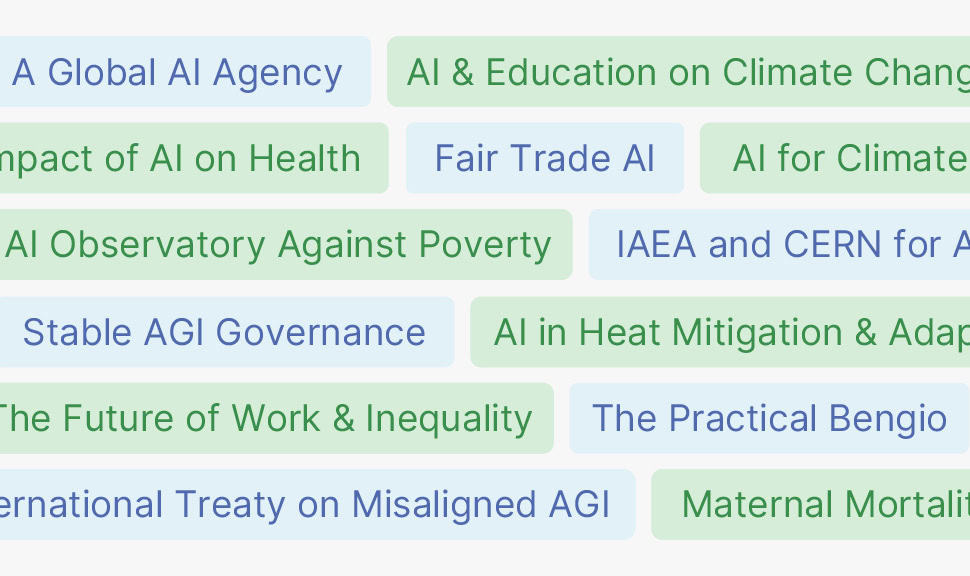
Future of Life Institute Announces 16 Grants for Problem-Solving AI
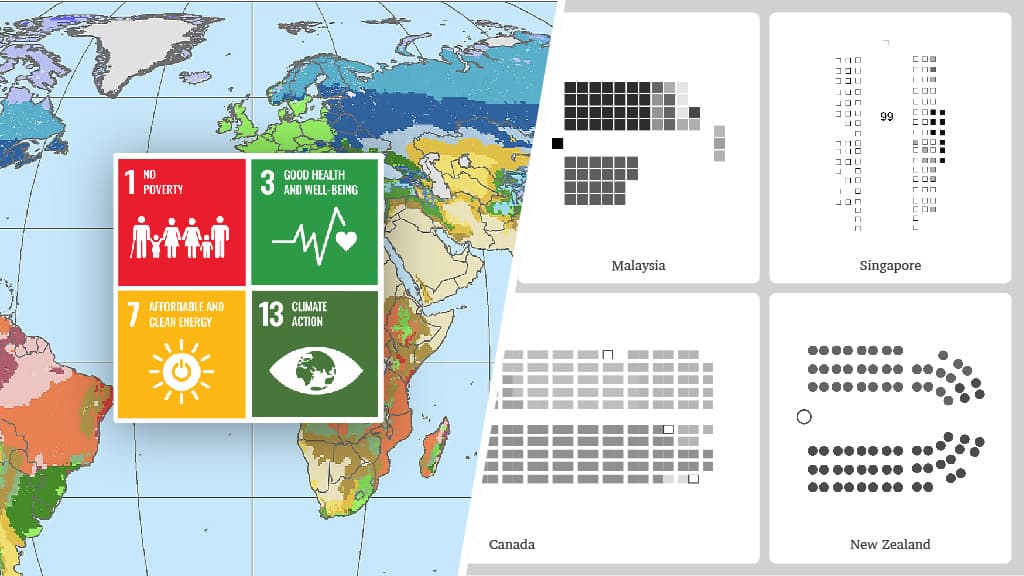
Realising Aspirational Futures – New FLI Grants Opportunities


